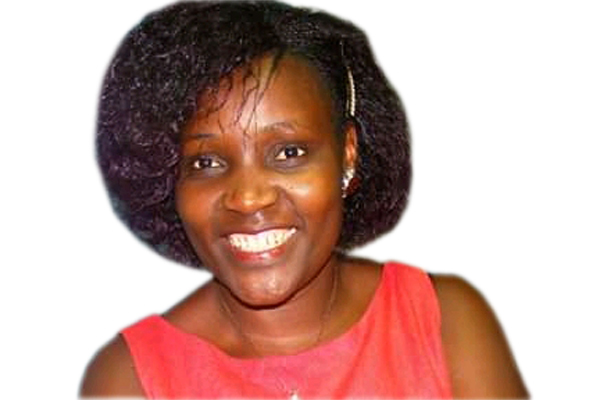Support victims of sexual violence

Hadijah Mwanje
What you need to know:
- According to the 2021 UNFPA Factsheet on Teenage Pregnancy, a total of 290,219 teenage pregnancies were recorded from January to September 2021, translating to over 32,000 every month. We are also seeing an increase in cases of sexual violence against children online since more children are accessing the internet for online learning. A recent report from UNICEF, Disrupting Harm , has shown that 40 per cent of children in Uganda aged 12–17 are internet users engaged in potentially risky behaviour including sharing nude pictures. The report also shows that many children go on to physically meet the people they connect with online, some of whom might be dangerous.
Uganda is facing an inexcusable wave of increased cases of sexual violence against children. According to the 2018 Uganda Violence against Children Survey by the Ministry of Gender, Labour and Social Development, 35 per cent of Ugandan girls aged 18–24 years old have experienced sexual violence during their childhood, while 17 per cent of boys reported the same. This situation was made worse by the Covid-19 pandemic and associated lockdowns and school closures.
According to the 2021 UNFPA Factsheet on Teenage Pregnancy, a total of 290,219 teenage pregnancies were recorded from January to September 2021, translating to over 32,000 every month. We are also seeing an increase in cases of sexual violence against children online since more children are accessing the internet for online learning. A recent report from UNICEF, Disrupting Harm , has shown that 40 per cent of children in Uganda aged 12–17 are internet users engaged in potentially risky behaviour including sharing nude pictures. The report also shows that many children go on to physically meet the people they connect with online, some of whom might be dangerous.
The World Health Organization defines child sexual abuse as the involvement of a child in sexual activity that she or he does not fully comprehend, is unable to give informed consent to, or for which the child is not developmentally prepared to give consent, or that violates the laws or social taboos of society. Child sexual abuse can be physical, emotional, or verbal. Many of these forms can take place in person or online.
Studies have shown that there are gendered distinctions in the degree of violence when it comes to sexual violence, with data demonstrating girls experiencing it at significantly higher rates than boys. Given the nature of society that we live in, men and boys are given more power and permission to use their power the way they want with little accountability or penalty. Often when sexual violence occurs, the blame is shifted from the perpetrators to the survivors which trivializes the problem.
Society normalizes sexual harassment i.e., catcalls or unwanted sexual comments or touches. Such acts embarrass, humiliate, and affect children’s emotions and psychological wellbeing. The effects of sexual violence on children goes beyond contracting sexually transmitted diseases, pregnancy, physical pain, or fistula, but also extends to loss of trust, behavioral challenges, stigma, and other emotional and mental health challenges.
Due to the historic power imbalance between men and women, boys and girls, and adults and children, sexual violence continues to rise. The pandemic and associated measures have made matters worse while bringing this hidden issue to the surface as various forms of sexual violence and their effects are reported to service providers. Although it is heartbreaking that girls are experiencing this wave of violence, it is a wakeup call to put in place clear measures to create safer homes and learning environments for girls and for everyone.
Here are some actions we must consider to curb the skyrocketing cases of sexual violence:
Prioritize prevention. Adults need to educate themselves on using their power positively, to nurture and guide children. We can make good choices instead of using our power to harm children. Studies on sexual violence against children have shown that majority of children are abused by people known to them.
Parents, caretakers, and teachers need to build healthy relationships with children through open communication and rethink the culture of silence on sexuality that escalates the problem of sexual violence. Children continue to experience sexual violence because they remain silent for fear of being blamed for it, not believed, or made to feel ashamed.
It is critical that we actively listen to and believe children. Covid-19 has had far reaching effects on adults as well as children and we must listen to and believe their stories of abuse. Children who suffer sexual abuse need support for their mental wellbeing. As schools open, it is important that schools support mental health of learners, and parents prepare for the return of young girls who have been impregnated.
Police and the relevant authorities should expeditiously handle cases of sexual violence so that the perpetrators are brought to book. We must not only choose not to participate in any form of sexual violence and report cases that you come across – silence is not an option! – But we must actively press our leaders and authorities to bring perpetrators to justice.
Ms Hadijah Mwanje is the communications and advocacy officer at Raising Voices.




